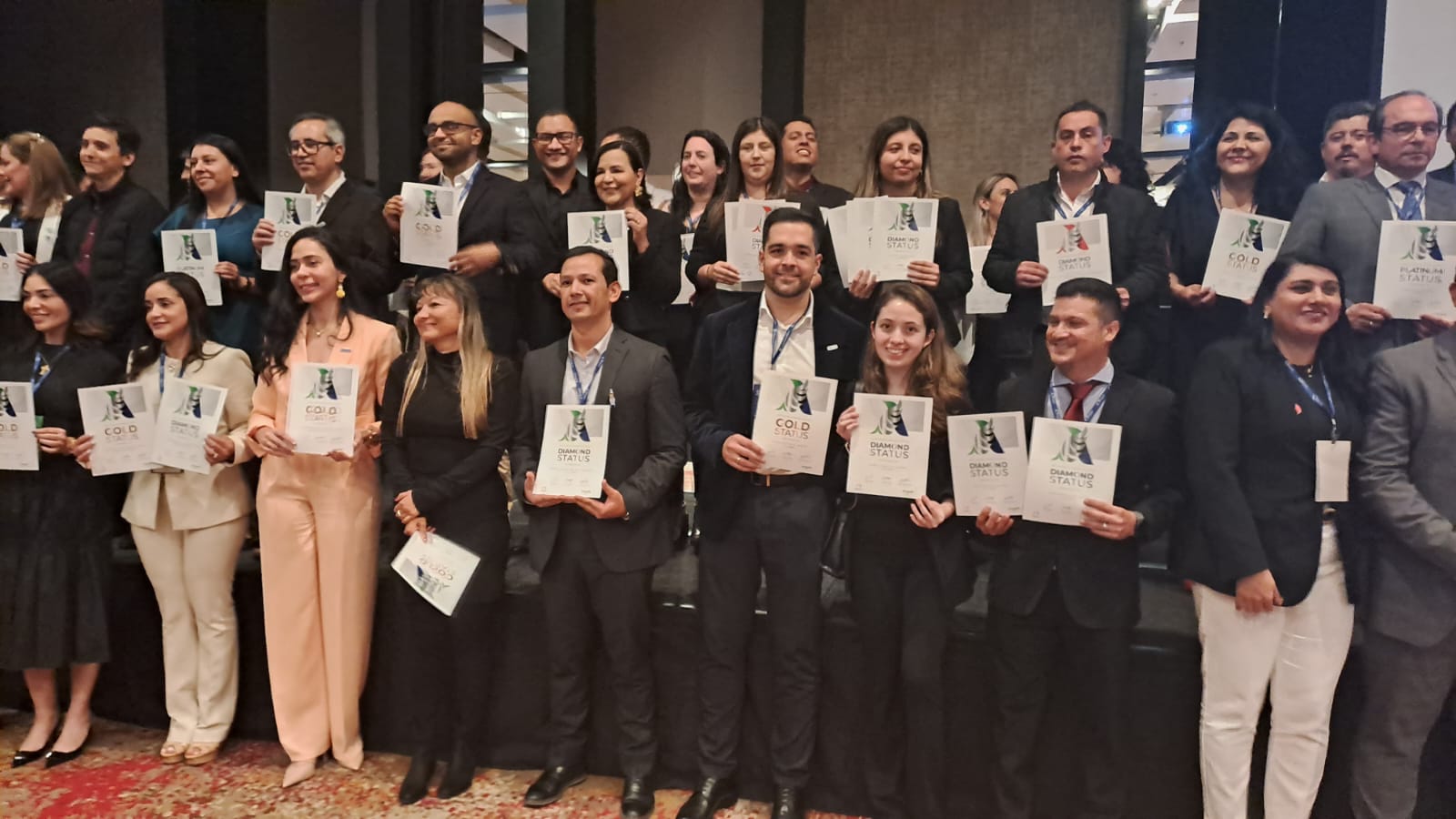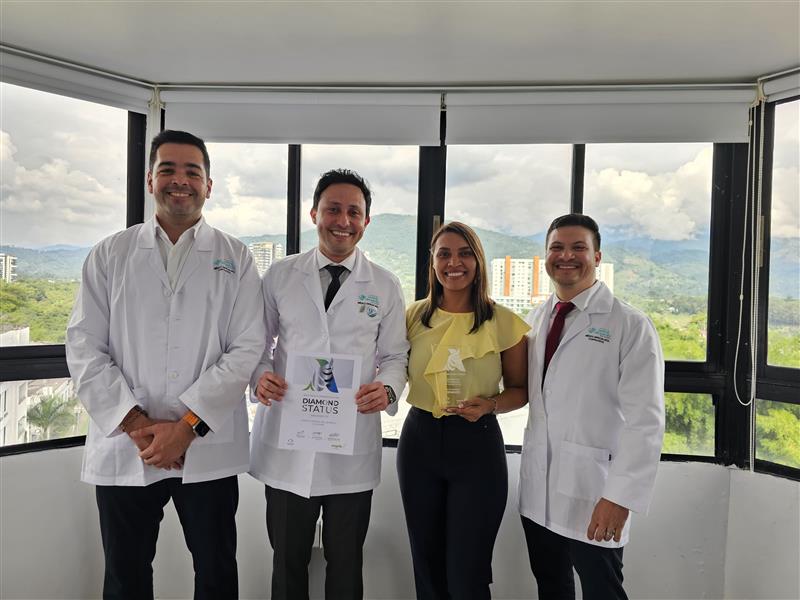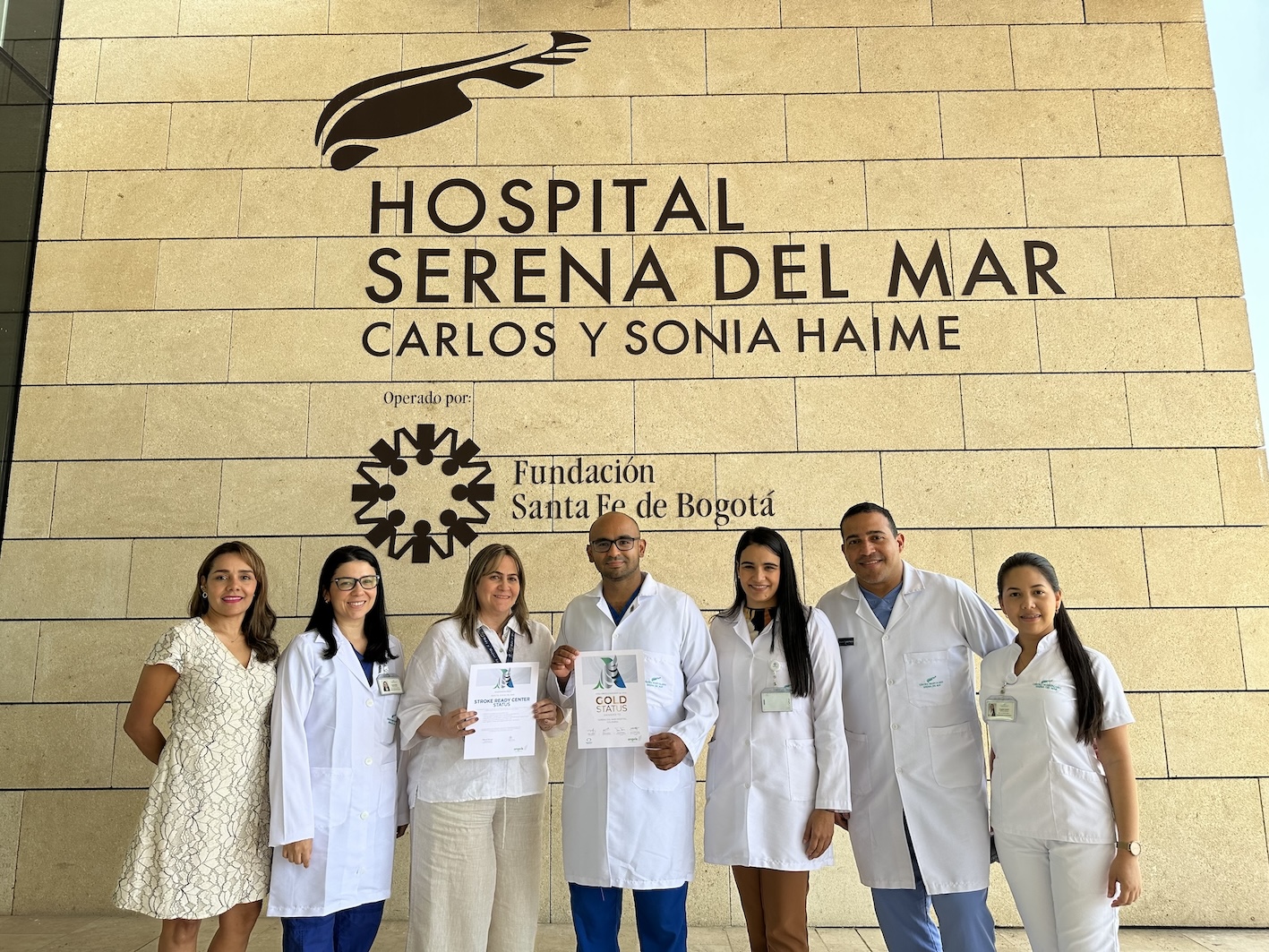Quando um antigo colega sofreu um AVC e não recebeu tratamento a tempo, foi um ponto de viragem para o Hospital Cruz Roja em Córdoba. A sua jornada para se juntar à rede de AVC na sua região começou com uma chamada para a consultora Angels Alicia Arjona...
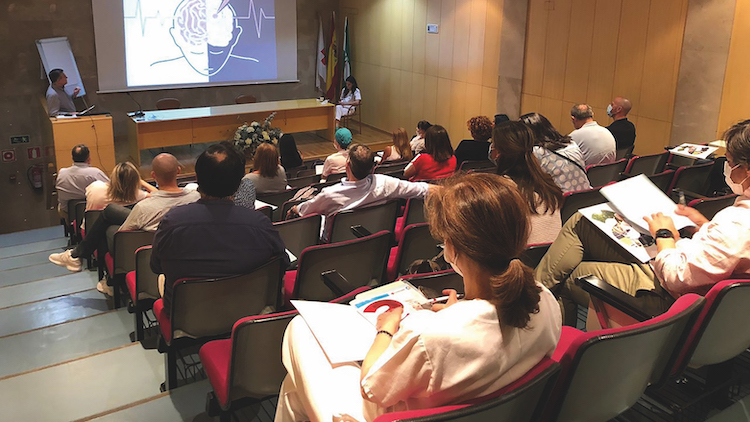
Trabalhar num hospital significa que vê doentes com todos os tipos de sintomas e doenças todos os dias. A pandemia trouxe ainda mais pacientes, muitos que não puderam ser salvos. Mas e se um doente vier ao hospital com um tipo peculiar de AVC? E se o seu hospital não estiver equipado para diagnosticar e lidar eficazmente com esses doentes?
Pior ainda, e se este doente for alguém que conhece pessoalmente, como um colega, por exemplo? Esta experiência partiria o seu espírito ou motivá-lo-ia a fazer uma mudança? No caso do Hospital Cruz Roja em Córdoba (HCRC), esta experiência levou a um novo começo.
Um médico recém-reformado do hospital veio às urgências relatando que não se sentia bem há várias horas. Os médicos apresentam sintomas mistos de vertigem, um mimetizador de AVC frequente e relacionados com o seu historial de fibrilhação auricular anterior. Permaneceu no hospital para ser acompanhado e cuidado. Quando mais tarde caiu enquanto tentava andar, decidiram levá-lo à sala de TC e descobriram um enfarte cerebral. Nessa altura, infelizmente era demasiado tarde para fazer qualquer coisa contra o seu AVC.
O código de AVC em Córdova e em toda a Andaluzia especifica que os AVC são tratados nos hospitais públicos que fazem parte da rede de AVC. Córdova tem um destes hospitais – um centro abrangente – e se qualquer um dos outros hospitais na cidade receber um doente de AVC, envia os exames de TC para este centro para mais instruções e transferência.
Mas Córdoba é uma grande cidade com uma população significativa para ter apenas um centro de AVC. É por isso que, apesar de estar no meio de uma pandemia, a Unidade de Cuidados Intensivos liderada pela Dra. Noelia Munoz e o Departamento de Neurologia liderado pelo Dr. Roberto Valverde do HCRC decidiu começar a tratar doentes de AVC e implementar um código formal de AVC.
Convidaram a consultora Angels da região, Alicia Arjona, para discutirem as soluções e os próximos passos a implementar nos seus protocolos. Depois reuniram toda a equipa do hospital, independentemente da sua função, para anunciar o objetivo – um novo grupo de doentes começaria a chegar e todos deveriam ter a informação essencial para que reconheçam um AVC e saibam como proceder.
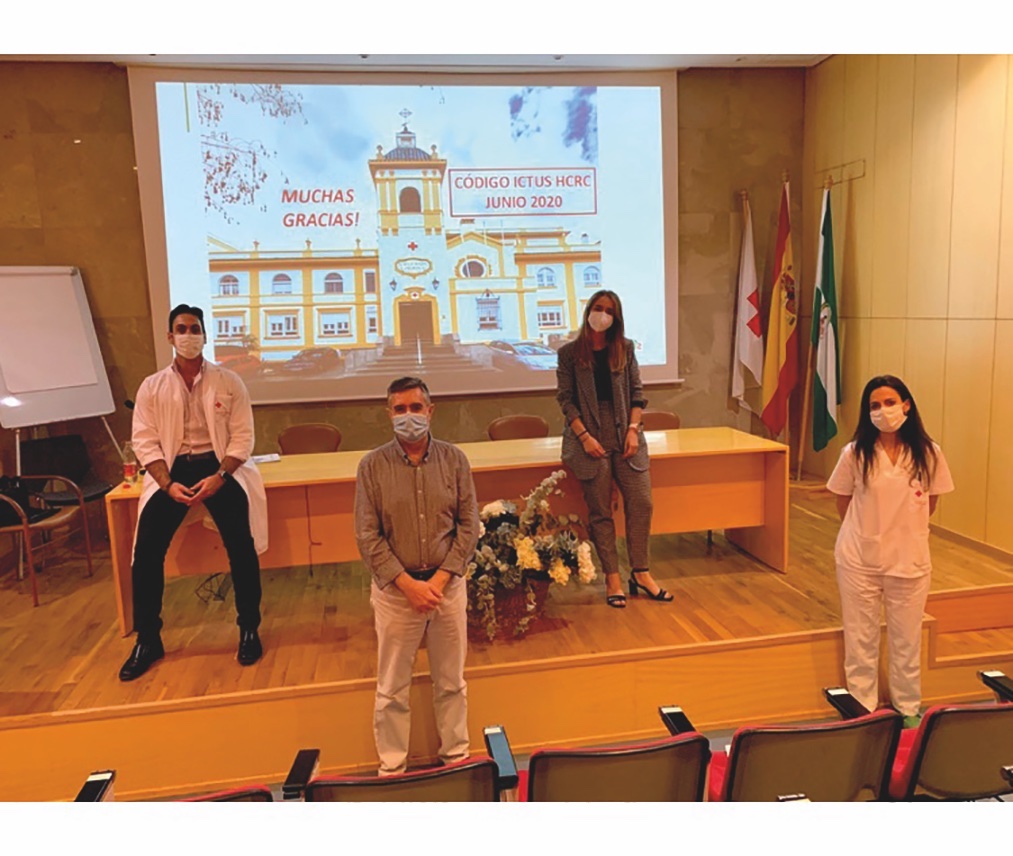 Foi criado um grupo de trabalho multidisciplinar, chamado Equipa Brain. “Compreenderam verdadeiramente o poder do trabalho de equipa nos cuidados de AVC”, diz Alicia Arjona. “Incluíram todos no hospital no desenvolvimento do percurso e formações de AVC. E a equipa trabalhou para fazer com que todos entendessem que são uma parte essencial desta jornada."
Foi criado um grupo de trabalho multidisciplinar, chamado Equipa Brain. “Compreenderam verdadeiramente o poder do trabalho de equipa nos cuidados de AVC”, diz Alicia Arjona. “Incluíram todos no hospital no desenvolvimento do percurso e formações de AVC. E a equipa trabalhou para fazer com que todos entendessem que são uma parte essencial desta jornada."
A equipa desenvolveu um espírito de melhoria e colaboração. O Dr. Munoz e o Dr. Valverde organizaram cuidadosamente formações que poderiam envolver todos sem violar quaisquer regras de higiene e distanciamento social.
Ao longo de vários dias em maio, ensinaram ao pessoal a triagem adequada, a fase hiperaguda, a avaliação neurológica da NIHSS e as melhores práticas nos cuidados pós-agudos. Escolheram o objetivo desafiante de um tempo porta-a-agulha de 25 minutos; foram implementados cartazes de Helsínquia para registar dados e a utilização de listas de verificação foi estabelecida como parte do protocolo.
Ao trabalhar com a Angels, também realizaram simulações que consistiram em dois cenários diferentes – um doente com AVC Covid-19-negative, que envolveu EMS, e um doente com Covid-19-suspected que chegou ao hospital sozinho.
Até maio deste ano, o Hospital Cruz Roja já tinha tratado com sucesso os seus primeiros 10 doentes com AVC agudo. O tratamento ocorre na sala de TC, com o saco de AVC pronto, e toda a equipa de AVC agendou regularmente reuniões de monitorização da qualidade para identificar barreiras e continuar a melhorar.
Os doentes de AVC continuam hospitalizados na UCI, pois o número de doentes da Covid-19 não lhes permitiu atribuir camas a uma unidade de AVC especializada. No entanto, este mantém-se o seu objetivo e está pronto para ser implementado assim que a pandemia o permitir.
As ligações não só foram reforçadas entre os porteiros do hospital, médicos do SU, médicos da UCI, EMS, enfermeiros, neurologistas, administradores de dados de doentes e radiologistas no interesse de melhores resultados para doentes de AVC; o hospital também adotou a ideologia Angels e compreendeu a importância da comunidade. Ao partilhar a sua história, querem dar aos outros a confiança para tratar doentes com AVC e incentivá-los a seguir os seus passos.
A Dra. Noelia Munoz diz: "Angelsajudou a implementar uma mudança cultural até que o bem se tornasse melhor e o melhor se tornasse o melhor. Uma cadeia é tão forte como o seu elo mais fraco... uma cadeia de gestão e tratamento de doentes de AVC no hospital.
“Acreditamos fortemente na cadeia de sobrevivência: Refere-se a uma série de ações que, devidamente executadas, reduzem a mortalidade associada a estas intervenções sensíveis ao tempo despendidas pelas pessoas. Tem de ser maximizado e otimizado para que também a qualidade de vida seja incluída nesta sobrevivência.
“Agradecemos aos doentes pelas aulas diárias. Foi um doente de AVC que nos deu a oportunidade de mudar a nossa vida, mais do que nós a salvar um doente de AVC. Estamos agora envolvidos neste projeto maravilhoso devido a ele [o doente]”.

